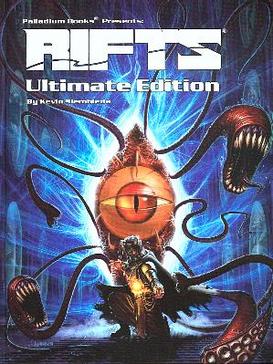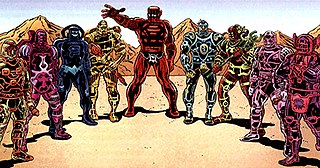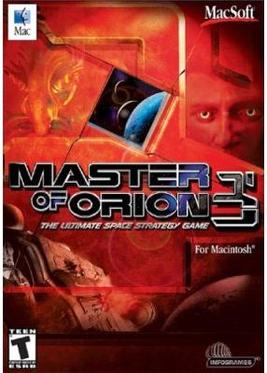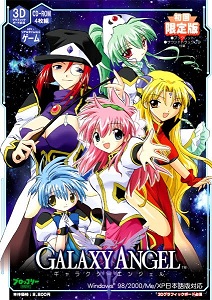
The Berserker series is a series of space opera science fiction short stories and novels by Fred Saberhagen, in which robotic self-replicating machines strive to destroy all life.

Rifts is a multi-genre role-playing game created by Kevin Siembieda in August 1990 and published continuously by Palladium Books since then. Rifts takes place in a post-apocalyptic future, deriving elements from cyberpunk, science fiction, fantasy, horror, western, mythology and many other genres.

The Celestials are fictional characters appearing in American comic books published by Marvel Comics. Depicted as cosmic beings, they debuted in the Bronze Age of Comic Books and have reappeared on numerous occasions.
The Uplift Universe is a fictional universe created by American science fiction writer David Brin. A central feature in this universe is the process of biological uplift.

Master of Orion II: Battle at Antares is a 4X turn-based strategy game set in space, designed by Steve Barcia and Ken Burd, and developed by Simtex, who developed its predecessor Master of Orion and Master of Magic. The PC version was published by MicroProse in 1996, and the Macintosh version a year later by MacSoft, in partnership with MicroProse. The game has retained a large fan base, and is still played online.
The mythology of the Stargate franchise is the historical backstory of the Stargate premise, which centers around xeno-mythology as experienced by humans during episodic contact. In the fictional universe of the franchise, the people of Earth have encountered numerous extraterrestrial races on their travels through the Stargate.

Master of Orion III is a 4X turn-based strategy game and the third in the Master of Orion series. Master of Orion III was developed by Quicksilver Software and published by Infogrames Interactive on February 25, 2003.

Space Force: Rogue Universe is a space simulation video game developed by Croatian Provox Games. The game was released in North America in April 2007 by DreamCatcher Games, and was released in Europe by JoWooD Productions and available in August 2007. It was followed by Space Force: Captains.
Metroid is a series of nonlinear science fiction action games published by Nintendo, featuring side-scrolling, metroidvania, and first-person shooter elements. The player character and protagonist of the series is Samus Aran, a spacefaring bounty hunter who battles Space Pirates and an extraterrestrial species called the Metroid.
Nemexia is a browser-based, massive multi-player online space strategy game. Each player can choose from one of three races and develop their powerful space empire. With the assistance of their friends they can conquer the Universe by constructing the Supreme Starway Gate (SSG).

Galaxy Angel is a bishōjo sci-fi metaseries composed of anime, manga and dating sim video games. It was created by Broccoli in July 2000, when it launched a multi-platformed project called Project G.A. The anime and Galaxy Angel Party manga comprise a comedy story in an alternate universe, while the games and the regular manga have a serious romance and action plot.
A self-replicating machine is a type of autonomous robot that is capable of reproducing itself autonomously using raw materials found in the environment, thus exhibiting self-replication in a way analogous to that found in nature. Such machines are often featured in works of science fiction.
The Marvel Cinematic Universe (MCU) is an American media franchise and shared universe centered on superhero films and other series starring various titular superheroes independently produced by Marvel Studios and based on characters that appear in American comic books published by Marvel Comics. The shared universe, much like the original Marvel Universe in comic books, was established by crossing over common plot elements, settings, cast, and characters. Due to the galaxy-spanning nature of the franchise, multiple species have been introduced.







